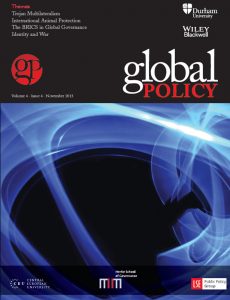The romantic and the mundane: Finding your soulmate via Social Practice Theory

Do you believe that ‘The One’, your ‘soul-mate’, your ‘life-partner’ exists? Have you already found them? Hollywood movies, glossy magazines, and agony aunts repeatedly reassure us that, firstly, somewhere out there is Mr/Miss Right, and secondly, we just need the good fortune to find them – some auspicious occasion when true love will make its presence known. I was compelled to dwell on this when I read Julie Birchill’s recent article on the matter in the Spectator. I don’t want to debate whether or not there is one predestined mate out there for each of us (for the record I’m pretty sure there isn’t), but Birchill’s piece did make me dwell on how we meet partners in particular, and how we meet and make friends generally. In reality, this is often more about the social practices we engage in, rather than personality traits or, good fortune, which bring people together. As with a lot of sociology and psychology, it replaces the romantic with the mundane.
To paraphrase Aristotle, “we are what we often do”. Our actions are what make us. This is the basic premise of ‘social practice theory’, the idea that people can be understood in terms of social things they do: habits and routines which involve particular things and particular skills. Social practices can include cooking, farming, hobbies, forms of work and forms of recreation. Practices are always social in either the way we learn them or the way we perform them, and they usually involve ‘rules’, mastery, the use of physical things, and consumption in one way or another.
Social practice theory is useful because it is neither overly individualistic nor systemic. We construct our lives through accumulating and combining different social practices, which bring us into contact with certain people, while excluding others. Reckwitz says that people are the ‘carriers’ of practices, but if that sounds a little bit too robotic and unconscious, Warde argues that we can actively construct our identity in the way we ‘mix and match’ different social practices in this age of ‘cultural omnivorousness’. Eating organic, watching horror movies, taking part in roller derbies, drinking real ales, playing bridge, going to concerts of a a particular musical sub-genre, whatever: it’s our choice – it’s who we are. Some social practices are predetermined by the culture, country, religion, gender into which we are born, but some, the ones we choose, give us scope to create and refine our personality, and to exhibit that personality to potential friends and even sexual partners (hence dating site profiles are always full of social practices).
The mundane conclusion we can draw from this is that our friends and partners are identified because they share the same social practices as we do. It’s little surprise that a recent survey showed that most married couples met at work, through friends, or at university. Our social practices not only define who we are, but define the people we spend our life with. Furthermore, the practices we engage with in our youth can define our future relationships. Peter Ustinov said that friends are not “necessarily the people you like best, they are merely the people who got there first.” We can all probably find anecdotal evidence to back this up: the friends we have from school or university are often the ones who stay with us.
According to anthropologist Robin Dunbar, each of us only has the capacity for a very limited number of friends. Forget your one thousand facebook “friends”, according to Dunbar we only ever have five really close friends, plus about ten more to make up our ‘inner circle’, then about thirty-five on the periphery. We might then have about one hundred more people with whom we have some kind of looser friendly relationship. Other research (Saramaki, 2014) shows that there is a strong one-in, one-out rule with our friendship group. To make space for a new friend, someone else has to make way because our brains can only maintain a finite and fixed number of close relationships.
Finding friends and sexual partners is thereby reduced to the social practices we engage in, and the fact that the people who get there first are likely to stay there. Sucks out a lot of the romance out of er, romance, doesn’t it?
Single? The mundane conclusion you can take away from all this is that you’re more likely to meet your future spouse by the office water cooler than anywhere else. The more romantic conclusion is that you probably already know Mister/Miss Right, and you don’t even realise it yet.
References
Saramäki et al. (2013) Persistence of social signatures in human communication. PNAS 2014 111: 942-947.
Reckwitz, A. (2002). Towards a Theory of Social Practices: A Development in Culturalist Theorizing. European Journal of Social Theory, 5(2), 243–263.
Warde, A. (2005). Consumption and Theories of Practice. Journal of Consumer Culture, 5(2), 131–153.





